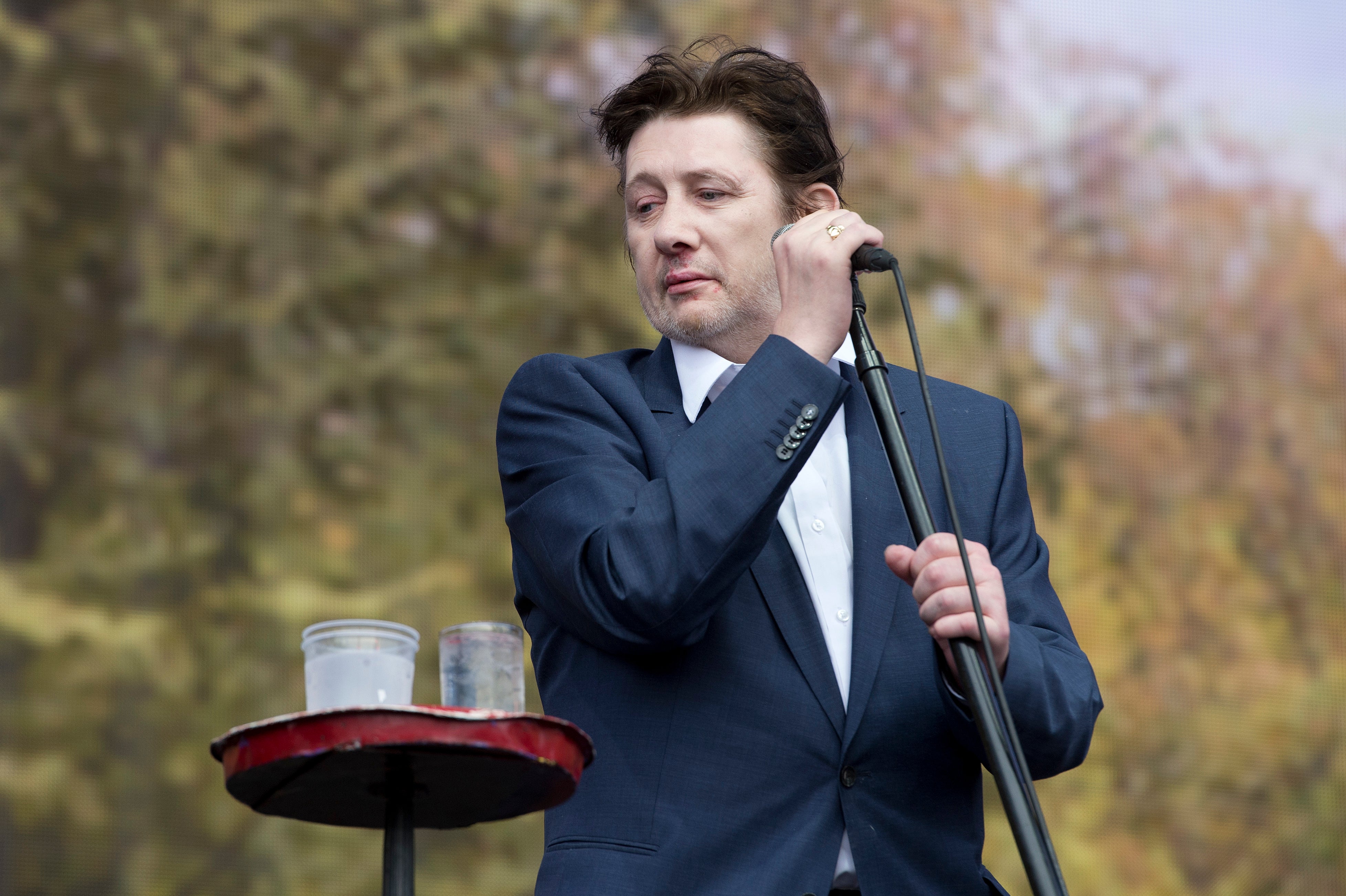The Shane MacGowan I knew was so much more than a Christmas song
The Pogues frontman was a witty, curious man with an affinity for Irish history and culture, writes journalist Robert Dineen


The last time I listened to the Pogues’ debut album, I thought I heard a ghost. In the fade-out on side one, a Corkman recites a Gaelic phrase that translates as “There’s no place like home”, and performs a brief, solo lilt.
This was my uncle, Tom O’Grady, whose voice I had not heard in the decade since he died. Tom was no singer, much less a musician. His appearance on the record was down to his friendship with Shane MacGowan, the band’s frontman and chief songwriter, who has sadly died today aged 65.
The pair met in the early 1980s at Rocks Off, the record shop on Hanway Street, an alley off Tottenham Court Road in central London, where Tom shopped and Shane worked before The Pogues took off. They bonded over a mutual passion for music, film and general carousing, though their shared ethnicity was doubtless important to the friendship, too. As was the case with most migrants to Britain in this period, you gravitated to your own.
Through Tom, I met Shane a few times – years after The Pogues peaked. I cannot pretend to have known him, but I got snapshots of the man. I certainly recall the drink I bought him – a triple Martini with a dash of lemonade (“Just a dash, right?”).
I remember when Tom lent the young Shane a shirt for a public appearance. On another occasion, when they caught up in the moments before a gig, Shane was careful to ask after his family, including one member who is now in care. Equally, he was happy to tell Tom, an excitable bloke, to “shut the f*** up” when Shane was struggling to say his piece.
Whether because of the drink or not, Shane could seem a tack behind pub chat. After one concert at Shepherd’s Bush Empire, he revealed an unexpected vanity by spending a conversation fixing his hair in the dressing-room mirror.
Tom was more expansive with his memories of Shane. He noted his erudition, for example, describing how easily, even as a young man, he held forth on subjects including literature and history, especially Ireland’s. He also mentioned a wit sharp enough to intimidate company, a quality to which James Fearnley, The Pogues’ accordion player, referred in his excellent memoir Here Comes Everybody.
Everyone in the band, Fearnley wrote, was “shy of his irony”. MacGowan was far from the most handsome guy but women, Tom found, were drawn to his charisma long before fame took hold.
Tom’s contribution to the debut Pogues album, Red Roses For Me, was well chosen. His truism fitted a band whose songs so eloquently captured the life of a community who were far from home, namely, London’s working-class Irish. From songs such as “The Old Main Drag”, which described a hopeful teenager who ended up a rent boy in the city; to “The Sick Bed of Cuchulainn”, whose scenes from the life of a dying war veteran include a bout of syphilis and getting thrown out of the Euston Tavern; and “A Pair of Brown Eyes”, featuring two heartbroken strangers in a London pub, Shane depicted the challenge of trying, and often failing, to build a life in a society to which you were not always welcome.
Some of these characters are explicitly Irish; for others, it is implied. By setting the stories to an uplifting, punk version of Irish folk music, Shane also provided his community, especially its youth, with an opportunity to celebrate their culture away from the innervating Irish dance halls of old. Hence, the tricolour flags and Celtic football club flags that were seen at Pogues concerts, with first and second-generation Irish engaged in full-blooded displays of national pride.
Shane had grown up mostly in Britain to Irish parents, with his dad a Dubliner and his mum from Tipperary. They were part of just the latest generation of Irish people to emigrate through financial necessity, an ages-old phenomenon that stitched geographical and spiritual dislocation into the national psyche. Though The Pogues would not have succeeded without brilliant melodies, the poignancy that often defined such an existence lent their songs vital strength.
Danny Kelly, the journalist and broadcaster who worked on the NME in the 1980s, was brought up in north London to Irish parents. He was among the first to observe this quality in Shane’s songs. “I argued, in a review, that his real importance was the importance he had to the Irish diaspora, to people like me,” Kelly says. “Shane had expressed the difficulties and joy of being part of a population, the majority of which is not actually at home. He explained in many of his songs the joy and the pain in that.”
Shane contacted Kelly to compliment the analysis. “He said it moved him, which was ridiculous because it was his job to move me and he did it many, many times.”
Shane is adored in Ireland and acclaimed by his contemporaries, with Bruce Springsteen, Nick Cave and Joe Strummer each having anointed him the most talented singer-songwriter of his generation. For all that he is generally admired, however, it is hard to find quite the same reverence elsewhere. When the NME named the best tracks of the 1980s, it chose only “Fairytale of New York”, the unlikely Christmas classic about a couple who have fallen on hard times.
You wonder what the mainstream knows of Shane beyond “Fairytale” and his alcohol consumption. Like most of us, given its festive ubiquity, Shane said he grew sick of the song. Having been born on Christmas Day, however, he might appreciate the symmetry of it being played in tribute to him over the next few weeks.
It stands not just as his most popular achievement, but emblematic of a deeply rich songbook.






Join our commenting forum
Join thought-provoking conversations, follow other Independent readers and see their replies
Comments